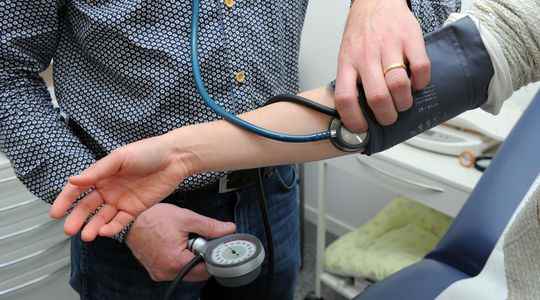Yes / “A solution to patient difficulties”
Speak Dr Francois Arnault, President of the Order of Physicians.
We are at a crucial time for the organization of care in the territory and to try to find a solution to the lack of doctors, in particular for the 650,000 patients with chronic illnesses who do not have a general practitioner. Access to care is also a matter of ethics, and that is why the National Council of the Order of Physicians has taken up the matter, in a joint discussion with the orders of other health professions (physiotherapists, pharmacists, nurses…).
Let’s be clear, it is not a question of circumventing the doctor, irreplaceable in his skills and alone in being able to establish a diagnosis. The aim is that patients everywhere have access to a doctor. But when patients encounter difficulties in a territory, the solution will come from more cooperation between all health professionals, under the coordination of the attending physician. In this context and to free up medical time, the doctor may choose to delegate certain acts to them. A well-informed pharmacist could thus prescribe short-term treatments for seemingly benign conditions.
The order also decided in favor of a delegation of orientation. If no general practitioner is available, a patient must be able to contact another caregiver who will help him, as quickly as possible, to find medical care. For certain acts, patients can already have direct access to these health professionals without first going through the attending physician, as provided for by law. For example, the physiotherapist for a sprain or lower back pain less than six months old.
On the other hand, all these innovations cannot see the light of day without a revaluation of the profession of general practitioner, because the question of its attractiveness is at the heart of the current difficulties.
No / “Our profession is more than a succession of acts”
By Dr. Agnès Giannotti, president of the MG France union.
The number of GPs per inhabitant is higher in France than in most neighboring countries, and yet we are overwhelmed. The reasons for this apparent paradox? The number of medical staff: 0.3 per doctor here, compared to 2.3 in Germany for example. We have too few secretaries, medical assistants for administrative tasks, and nurses for therapeutic patient education (smoking cessation, support for diabetic or overweight patients to help them change their lifestyle, etc.) .).
But today, when GPs should be allowed to have collaborators, we suggest that they entrust other health professionals (nurses, but also pharmacists, physiotherapists, etc.) with the responsibility of guiding patients who couldn’t find a doctor. To want to entrust part of our activity to them is to misunderstand its specificity: our profession is not a succession of acts that we could cut out and redistribute, the attending physician is responsible for the overall care, in the continuity, the health of its patients. Imagine the case of a patient dependent on opiate analgesics, whom I would manage to wean off. What would happen if he presented himself with violent dental pain to a pharmacist who could prescribe painkillers? Without having his medical file, he would risk offering him an opiate…
Where there are no more general practitioners, do we want nurses or pharmacists to direct the patient to a neurologist as soon as he has a headache? We do not question the skills of other caregivers, which we need. But defending ours is not corporatist. Let’s look together instead at how best to do, rather than trying to impose decisions that will disrupt the care of our patients.
